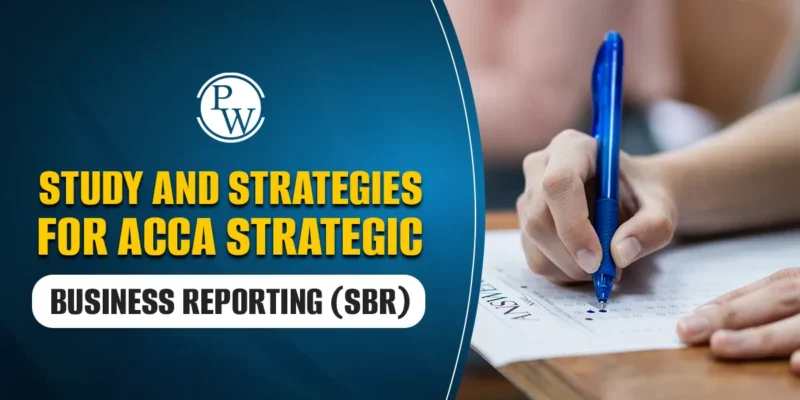Failing ACCA Strategic Business Reporting (SBR) more than once is a tough reality many students face. It’s frustrating, disheartening, and sometimes even embarrassing. But it’s also more common than you might think. If you’ve found yourself stuck in the cycle of retakes, you are not alone. In this guide, we will break down the reasons why students fail SBR, what makes it a uniquely challenging paper, and the practical steps you can take to turn things around.
Get help to pass ACCA SBR exam here.
Why Failing ACCA SBR Happens More Than Once
The first time a student fails SBR, it’s often due to underestimating the paper. But if it happens again, there are usually deeper issues at play. These are the most common ones:
- Repeating the same study strategy: Many students revise the same way they did the first time, expecting different results. SBR requires a change in mindset, not just repetition.
- Misunderstanding what the examiners want: Strategic Business Reporting is not about rote learning. It’s about analysis, application, and professional judgement.
- Poor exam technique: Even with a solid understanding of the material, poor time management, weak structure, or not addressing the requirements can cost valuable marks.
If you’re stuck in the retake loop, it’s worth asking: have you changed your approach or are you just doubling down on what didn’t work the first time?
The Unique Challenges of Strategic Business Reporting
Compared to other ACCA papers, SBR is different. It isn’t just another financial reporting exam. Students who have passed Financial Reporting (FR) with ease often come unstuck in SBR.
Here’s why:
- Professional marks matter: Up to 20% of the marks are awarded for professional skills like clarity, tone, and structured thinking.
- The questions are open-ended: Unlike FR, there’s often no single right answer. This can throw students used to precision and exactness.
- Application is everything: You can’t just explain a standard. You need to apply it to a specific scenario.
The Emotional Toll of Retaking SBR
It’s worth acknowledging the psychological impact of failing. Sitting the same exam more than once can:
- Knock your confidence
- Create anxiety around exam day
- Lead to feelings of isolation
This emotional burden can affect performance even if your technical skills improve. One of the most important things you can do is take a step back and look at your study habits with fresh eyes.
Signs Your Study Approach Might Be Failing You
If you’ve failed SBR more than once, it’s likely your current method isn’t working. Here are some red flags:
- You rely heavily on past papers but don’t get feedback
- You avoid mock exams because you fear poor results
- You focus on memorising model answers instead of understanding the logic
- You don’t regularly practise applying concepts to real-world scenarios
What You Can Do Differently
There’s no quick fix, but there are steps you can take that genuinely improve your chances of passing.
1. Learn to Think Like an Examiner
The examiner is looking for:
- Application of accounting standards
- Sound professional judgement
- Clear, logical structure
That means you need to:
- Always tailor your answers to the specific scenario
- Explain the “why” behind your conclusions
- Use headings, bullet points, and clear paragraphs
2. Work on Professional Marks From Day One
Many students leave these until the last minute. But earning professional marks is about how you think and write throughout the exam. Tips include:
- Using an appropriate tone (e.g. formal in a report)
- Avoiding unnecessary jargon
- Presenting points clearly and concisely
3. Practice With Realistic Timed Conditions
Time pressure is a big reason students fail ACCA SBR. Practising past exam questions under timed conditions is vital. But don’t just attempt them – get feedback. Knowing where you’re losing marks is as important as studying the content itself.
4. Identify Your Weakest Topics and Focus There
You don’t need to be perfect at everything. But you do need a strategy. Common weak areas include:
- IFRS 15 Revenue from Contracts with Customers
- IFRS 9 Financial Instruments
- Ethics and professional judgement scenarios
Target these first, then build out from there.
5. Study Actively, Not Passively
Reading notes or watching videos isn’t enough. You should be:
- Writing answers by hand or typing them out
- Self-marking against the examiner’s solution
- Comparing your approach to what’s expected
Use External Resources to Support Your Learning
There is no shame in seeking help. Sometimes, an outside perspective is exactly what’s needed. Whether it’s joining a study group, working with a tutor, or enrolling in an online SBR course, getting feedback can make a real difference.
You can find ACCA SBR support, course information and revision advice on the course page of this site. It may also help to read student testimonials to understand how others turned things around after repeated failures.
Break the Cycle With Better Planning
Many repeat SBR candidates don’t have a plan – they just ‘start revising’. But planning is crucial. Here’s a simple weekly structure you can adapt:
Week 1-2: Refresh core technical topics
- Focus on standards that commonly appear
- Do small, focused questions with feedback
Week 3-4: Deep dive into past paper questions
- Time yourself strictly
- Mark them using examiner guidance
Week 5-6: Focus on professional marks
- Practise writing formal responses
- Use scenarios to apply ethics
Week 7-8: Mock exams
- Sit two full exams under timed conditions
- Get feedback
Final days: Light review and mindset work
- Skim summary notes
- Visualise yourself managing time effectively
Getting Over the Hump: A Final Word
Failing ACCA SBR more than once doesn’t mean you can’t pass. It means something in your approach needs to change. You need to think differently, write differently, and practise with the exam in mind.
The good news? Once you break through, you’ll be a better accountant for it.
If you’re ready to explore new resources or need support in structuring your revision, visit the homepage or check the blog for practical ACCA tips.
If you’re feeling stuck or want to talk about your next steps, the contact page is a good place to start.
You’re not alone. Many have been where you are. What matters is what you do next.












Comments